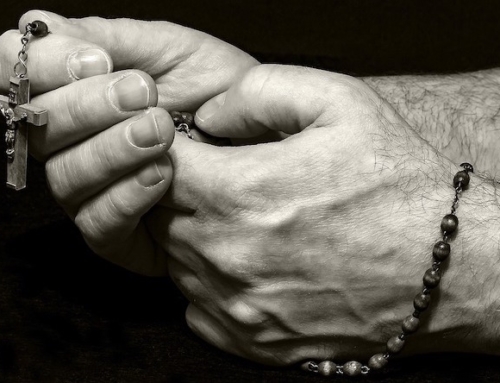A few years ago, my cousin Rebekah and her young family moved out of the big city to settle on a farm, taking a chance at country living. While her husband commutes to work, she homeschools her three children. What happens, though, when the children have had enough of the curriculum which the Board of Education (mom) sets for them? She relates such a dilemma in an online post to her family and friends:
Today was momentous. My first-born son moved out. He packed up a few shirts, his toy handcuffs, hatchet and pistol in a backpack and kissed me tearfully and walked out the door. It was all over a phonics lesson. He got frustrated and stubborn, and I got frustrated and stubborn. He threatened to ‘leave this family’ because he doesn’t like to ‘do homeschool or phonograms.’ I made the infantile mistake of saying, ‘OK, go ahead.’ So, HE DID. I watched in stunned disbelief as my best little buddy actually struggled out the door under the weight of a stuffed knapsack with his plastic army helmet on his head. He intended to move in with a neighbor. Since we moved to the country, we’ve only encountered the neighbors in the three nearby houses once or twice. Essentially they’re strangers. But Caleb was taking a gamble that they don’t make their kids learn phonics. I literally did not know what to do, as I realized that he was actually following through on this threat. I left the baby in his high chair and gave Eden a bucket of ice cream (because she was sobbing uncontrollably at the prospect of losing her brother), and I ran out of the house, following my wayward son at a distance as he walked down the road. He actually went up to the neighbors’ door and just stood there, looking in their window. I heard their four large parrots shrieking hysterically from inside, but no one opened the door to invite Caleb in, so he waited for a few more minutes and then began hiking to the next house. Before he got all the way there, I caught up with him and begged him to come home. We both cried, and he wrapped his arms around my neck. With the army helmet and weapons, I thought we looked a little bit like a scene from a movie. If any of the three neighbors did see what was happening, I’m sure they were curious. I carried my prodigal son back to the house with a promise of a homecoming party with ice cream and candy. We had to go to the grocery store because Eden ate all her feelings right out of the other ice cream carton. But we did have a much better afternoon. And now my little guy is tucked in upstairs after promising never to leave again. I know that promise is only good for another decade or so. Then he really will be moving on. Hopefully by then, he’ll have mastered his phonics.
In a way, the story of one family is the story of every family. Each of us has rebelled, and usually for silly reasons. I remember when my older brother refused to clean his room and ran away one night (he wouldn’t mind my saying so). He merely spent a few hours in the neighbor’s hammock, then came back. In the end, we really don’t have a better place to go, though it may take either a long or short while to realize that. Chris McCandless, subject of the book Into the Wild, left home right after college graduation to explore the world alone. Before he died in the Alaskan wilderness, he made a note in his copy of Dr. Zhivago, yearning for the company he left behind: “Happiness only real when shared.”
All of our stories, whether Caleb’s or yours or mine, are summed up in the Prodigal Son (Lk 15:11-32). Jesus here is making a deep point: Just as children run away from home, so too have we all wandered. Yet the most beautiful detail is that the father looks for his son and runs to greet him – just as the mother followed her son across the farm. Jesus is telling us that God is still with us, no matter how far we go, and for whatever silly reasons we cite.
This is not a story only concerning our relationship with God, but also the people he has placed in our lives. So many of our small quarrels grow with time, and even sometimes end in separation. Chesterton writes about divorce, for instance:
I have known many happy marriages, but never a compatible one. The whole aim of marriage is to fight through and survive the instant when incompatibility becomes unquestionable. For a man and a woman, as such, are incompatible.
While being sensitive to the real and complex problems that families face, this sentiment remains true. In a way, we are all incompatible, each life under the same roof being a universe unto itself. Yet as diverse as each of our lives can be, it’s a miracle they hold together as well as they do. Thanks be to God who sustains us. Thanks be to God who follows after us, even when we turn away from Him, so that when we fall apart He is right there, not asking for any explanation, but ready to receive us again.
✠
Image: In Mom’s Words, “Three Acres of Happiness”







